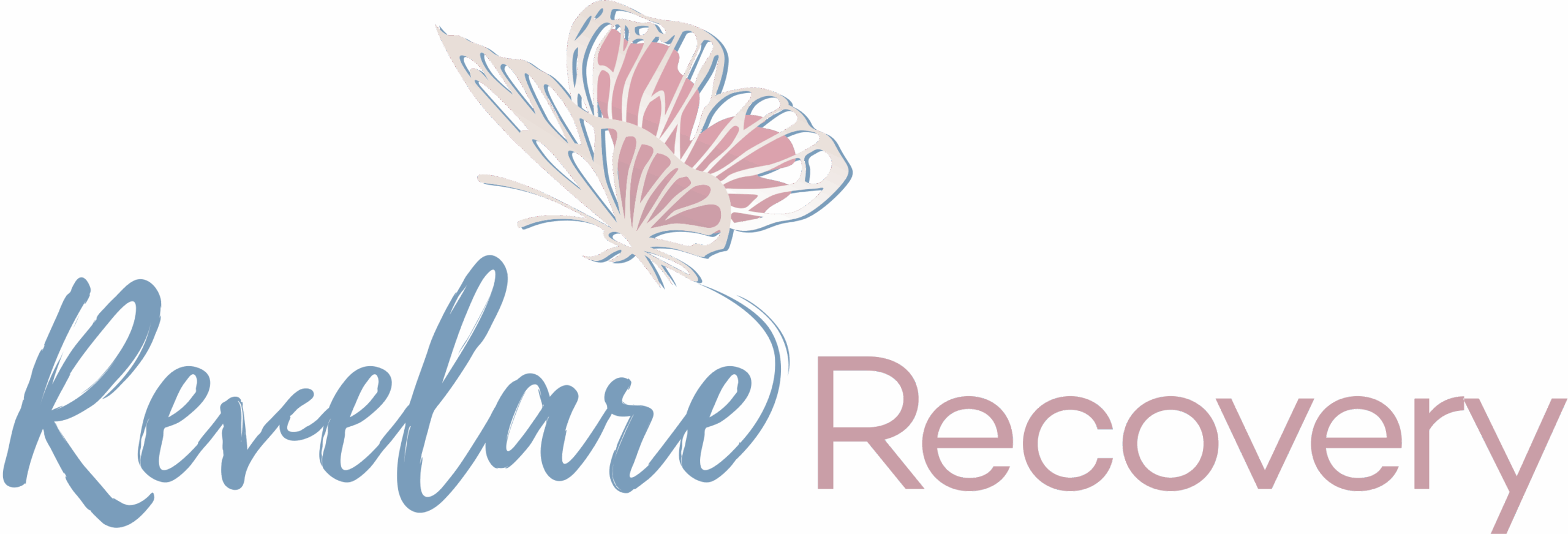Dual Diagnosis Treatment in Atlanta, Georgia
The term ‘co-occurring disorders’ or ‘dual diagnosis’ is used when a person has Substance use disorders (SUD), a medical condition that involves the regular use of substances even when it is causing harm, and one or more other mental disorders.
This is referred to as co-occurring disorder or dual diagnosis. People who have a dual diagnosis need a special approach to treatment, and it’s crucial to know how to identify dual diagnosis and get the most appropriate treatment.
What is Dual Diagnosis?
Dual diagnosis means that one can be diagnosed of mental illness and a substance use disorder at the same time. These co-occurring diagnoses makes managing both disorders even more challenging for the affected individuals.
Comorbidity can be defined as a state in which symptoms of two disorders are significantly increased in the same person. For instance, if a bipolar patient was also diagnosed to be an alcoholic, then the fluctuations in the mood and the episodes would be much severe than normal.
Find out if your insurance will cover the cost of treatment.
"*" indicates required fields
What is COD?
The term dual diagnosis has evolved and has been now referred to by a co-occurring disorder or COD. COD defined by the presence of both substance use disorder and mental health condition. It is a standard practice for a patient who has SUD (Susbtance use disorder) to also be diagnosed with a mental illness.
- Anxiety disorders
- Depression
- ADHD
- Bipolar disorder
- Personality disorders
- Schizophrenia
- Family history
- Self-medication in people suffering from mental illness as a method of dealing with symptoms
- Neural alterations resulting from addiction, and the fact that they might precipitate various mental disorders such as depression and anxiety.
Connection between Mental Disorder and Substance abuse
Mental health and substance abuse are quite connected in that one can result to substance abuse, as can substance abuse result to mental health disorders. Substance use disorders in individuals enable them to self-treat certain symptoms, for example, anxiety, depression, or past abuse. Consequently, on one hand, it causes the development of mental disorders and on the other – the deterioration of their symptoms.
Common Co-occurring Disorders:
- Depression and alcohol abuse
- Bipolar disorder is a condition that includes episodes of mania and hypomania, as well as depression episodes Bipolar disorder is known to cause substance abuse
- A variety of phobic/ anxiety disorders and drug dependency
- Schizophrenia and substance abuse
- PTSD and SUD PTSD and substance use disorder
Challenges Faced by Individuals with Co-occurring Disorders
People with co-occurring disorders establish special conditions in their estates. These may include:
- It is even more problematic in diagnosing and admitting to both the conditions
- Challenges of generalized stigma as related to mental disorder and substance use
- Some of the problems faced concerning the accessibility to adequate health care and treatment.
- Both are attributable to complications of treating the two disorders; the following are among the risks; Higher likelihood of exacerbation.
The Impact of Co-occurring Disorders
Physical health: Further susceptibility to infections, chronic diseases, water borne and air-borne diseases and propensity to common degenerate into a catastrophic one.
Relationships: However, non- compliance, withdrawal and consequently conflict and quarrels that lead to discontinuation of relationships with a familial, friendly and or life partner may well be present.
Employment: Side-effects of work performance problems, loss of chances to obtain steady employment or a job because of a mental health condition and alcohol and drug addiction.
Legal issues: More likelihood of getting into one’s self a legal suit about substance use and extremely little of the brain exercised.

How Many People have Dual Diagnosis Disorders?
Co-occurring disorders are in fact very prevalent in the population. Research reveals that 45% of people in the United States of America live with this dual diagnosis. Thus, patients with mental disorder have a higher prevalence of substance use disorder than people without such disorders, by approximately twice as much.
The National Institute on Drug Abuse (NIDA) approximate that 60% of adolescents who are in drug treatment have a co-existing mental disorder. This is true mainly because of the state of development of their brains as compared to that of an adult.
Co-Occurring Disorder Risk Factors
Secondary disorders may occur for a variety of reasons. The causes of co-occurring disorders known as dual diagnosis are both hereditary and acquired. These factors can include:
- Past occurrence of SUD or any kind of mental disorder in the family
- Drugs or substances, viruses or toxins if administered before birth
- Gender: male is more vulnerable to SUD and COD than female.
- Prior generalized SUD or mental health disorder
- Life events
- Trauma
Dual Diagnosis Treatment and Recovery
The treatment for the dually diagnosed disorder should therefore involve the diagnosis of the mental heath disorder and the substance use. This can be one or several therapies, medicines, and beneficial services and equipment for persons with definite diseases.
Key components of treatment:
Assessment
This must include a full evaluation battery with either the goal of determining if there is a current mental health/substance use disorder or if there is enough evidence to rule out an MH/SUD.
Medication management
This was through antihypertensive therapy and provision of medicine for flare up of COPD as recommended.
Psychotherapy
In an attempt to manage most of these clients one is therefore left with managing to organize for psychosocial treatments for conditions that might be causing emotional or even psychological complications.
Substance abuse treatment
With reference to Substance Use Dependence, the center also offer them a mode of Cognitive Behavioral Therapy, as well as Motivational Enhanced Treatment.
Support groups
Maintaining group and social cohesion and identifying like minds with whom to connect.
What are the Types of Dual Diagnosis Treatment
The main types of dual diagnosis treatment include residential care, therapy, medication-assisted treatment, cognitive behavioral therapy, and peer support groups. These approaches are designed to treat both mental health disorders and substance use disorders at the same time, improving long-term outcomes.
Types of Dual Diagnosis Treatment Explained
Dual diagnosis treatment is a specialized approach that targets both addiction and co-occurring mental health conditions in a coordinated, evidence-based way. Each treatment type plays a crucial role in supporting lasting recovery:
-
Residential Treatment – A live-in treatment setting that offers 24/7 supervision, medical support, and therapeutic services for individuals facing severe dual diagnosis challenges.
-
Individual and Group Therapy – Provides personalized care and peer interaction to address both mental health issues and substance use, a key part of dual diagnosis treatment.
-
Medication-Assisted Treatment (MAT) – Uses medications along with therapy to stabilize mood disorders and reduce cravings, offering balanced support for dual diagnosis patients.
-
Cognitive Behavioral Therapy (CBT) – Helps individuals change harmful thought patterns that drive both addiction and mental illness, making it a cornerstone of dual diagnosis treatment.
-
Peer Support Groups – Offers shared recovery experiences and emotional support, reinforcing coping strategies and accountability within dual diagnosis recovery.
By combining these treatment methods, dual diagnosis programs give individuals the tools they need to manage both conditions effectively and build a stable, healthier future.
The Dual Diagnosis Treatment Process
The treatment of any dual diagnosis, therefore, has to go hand in hand with considerations of a mental health disorder and a substance use disorder. Detox is usually initial. This may be uncomfortable on the mental and physical level because it brings the focus the core of the mental disorders.
Revelare Recovery, located in Atlanta, Georgia, is staffed by fully credentialed medical and mental health professionals who are dedicated to treating addiction and co-occurring disorders. We offer comprehensive addiction treatment and care, including:
- Medical detoxification
- Residential treatment
- Partial hospitalization programming
- Medication-assisted treatment (MAT)
- Dual diagnosis treatment
- Aftercare
- Teletherapy

Seeking Help for Co-occurring Disorders
When an individual struggles with both a mental health disorder and substance use disorder, it’s known as a dual diagnosis. The need for comprehensive, integrated care for co-occurring disorders is more critical than ever. Dual diagnosis treatment is specifically designed to address both conditions at the same time, improving the chances of long-term recovery and mental wellness.
To effectively respond to the growing need for services targeting individuals with dual diagnoses, specialized programs have been developed that combine psychiatric care, addiction counseling, and behavioral therapies. These dual diagnosis treatment programs are crucial because treating one condition without the other often leads to relapse or worsening symptoms.
If you or a loved one is living with a dual diagnosis, it is essential to seek help from experienced professionals. Dual diagnosis treatment can help you understand the complex relationship between mental health and substance use and offer the support needed to break the cycle. From inpatient rehabilitation and outpatient therapy to support groups and educational resources, there are many options available to begin the journey to recovery.
Frequently Asked Questions About Co-Occurring Disorders
What are co-occurring disorders?
Co-occurring disorders refer to the presence of both a mental health condition and a substance use concern at the same time. These conditions often influence each other, which is why integrated treatment is important.
Do both conditions need to be treated at the same time?
Yes. Treating mental health and substance use together helps create more stable, long-lasting outcomes. Integrated care addresses how these concerns interact rather than treating them separately.
Can co-occurring disorders include eating disorders or binge eating?
Yes. Eating disorders and patterns such as binge eating can occur alongside mental health and substance use concerns. At Revelare Recovery, care is designed to support the whole person and address overlapping patterns.
Is co-occurring disorders treatment different from standard treatment?
Co-occurring disorders treatment is more integrated and collaborative. It considers emotional health, behaviors, coping strategies, and life experiences together rather than focusing on a single diagnosis.
How do I know if co-occurring treatment is right for me or my loved one?
If mental health concerns and substance use or eating behaviors feel connected or are happening at the same time, integrated care may be helpful. Our team can help explore options and determine the right level of support.
Why Choose Revelare Recovery for Co-Occurring Disorders Treatment in Atlanta
At Revelare Recovery, we understand that when mental health concerns and substance use challenges occur together, they require integrated, compassionate care that treats the whole person—not just isolated symptoms. Our co-occurring disorders treatment in Atlanta, Georgia is grounded in a trauma-informed, women-centered approach that prioritizes safety, trust, and collaboration.
Our program is built on the belief that lasting healing happens when care addresses both emotional health and substance use simultaneously. At Revelare Recovery, you’ll benefit from:
-
Women-centered relational care designed for emotional connection and empowerment
-
Trauma-informed treatment across all services that meets you where you are
-
Integrated support for mental health and substance use so care isn’t fragmented
-
A thoughtful, collaborative treatment process that honors your goals and pace
We work closely with each client to make sure care feels supportive, respectful, and aligned with individual needs, helping women build skills and resilience that extend beyond treatment.
Don’t wait—getting the right dual diagnosis treatment can be the turning point toward a healthier, more stable future. Ready to take the next step? Contact Revelare Recovery today to begin your path to healing with compassionate, expert care.
